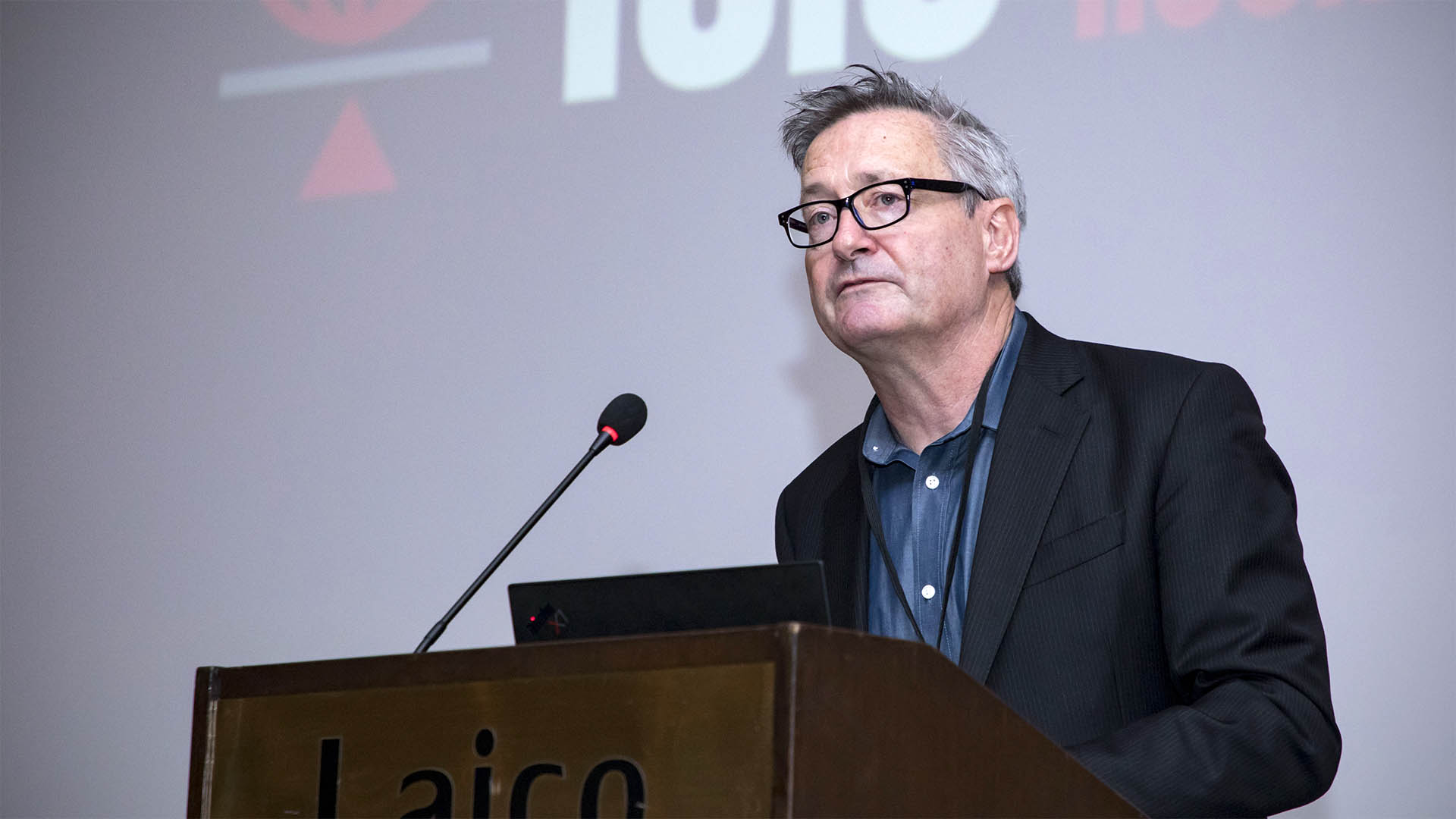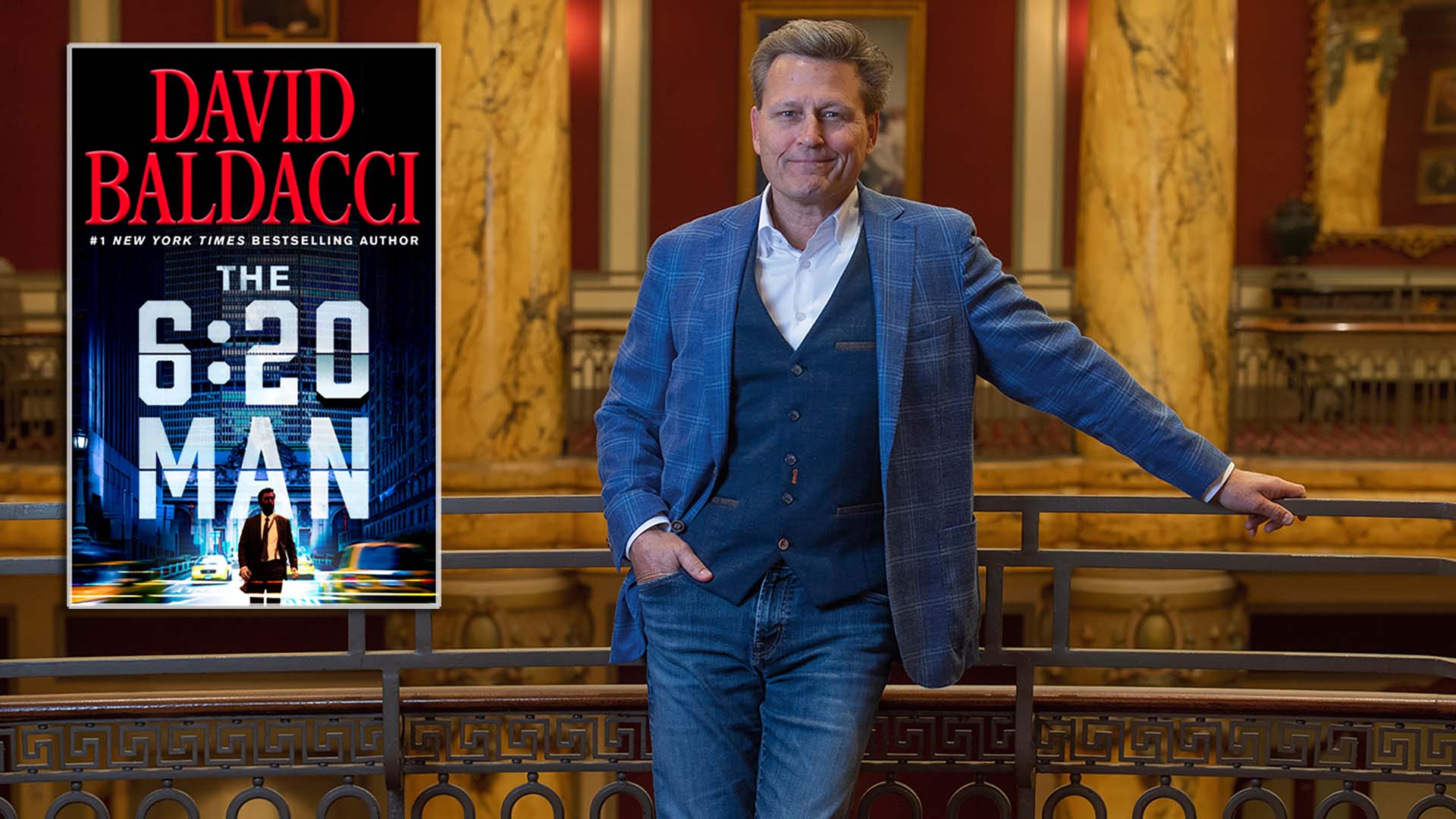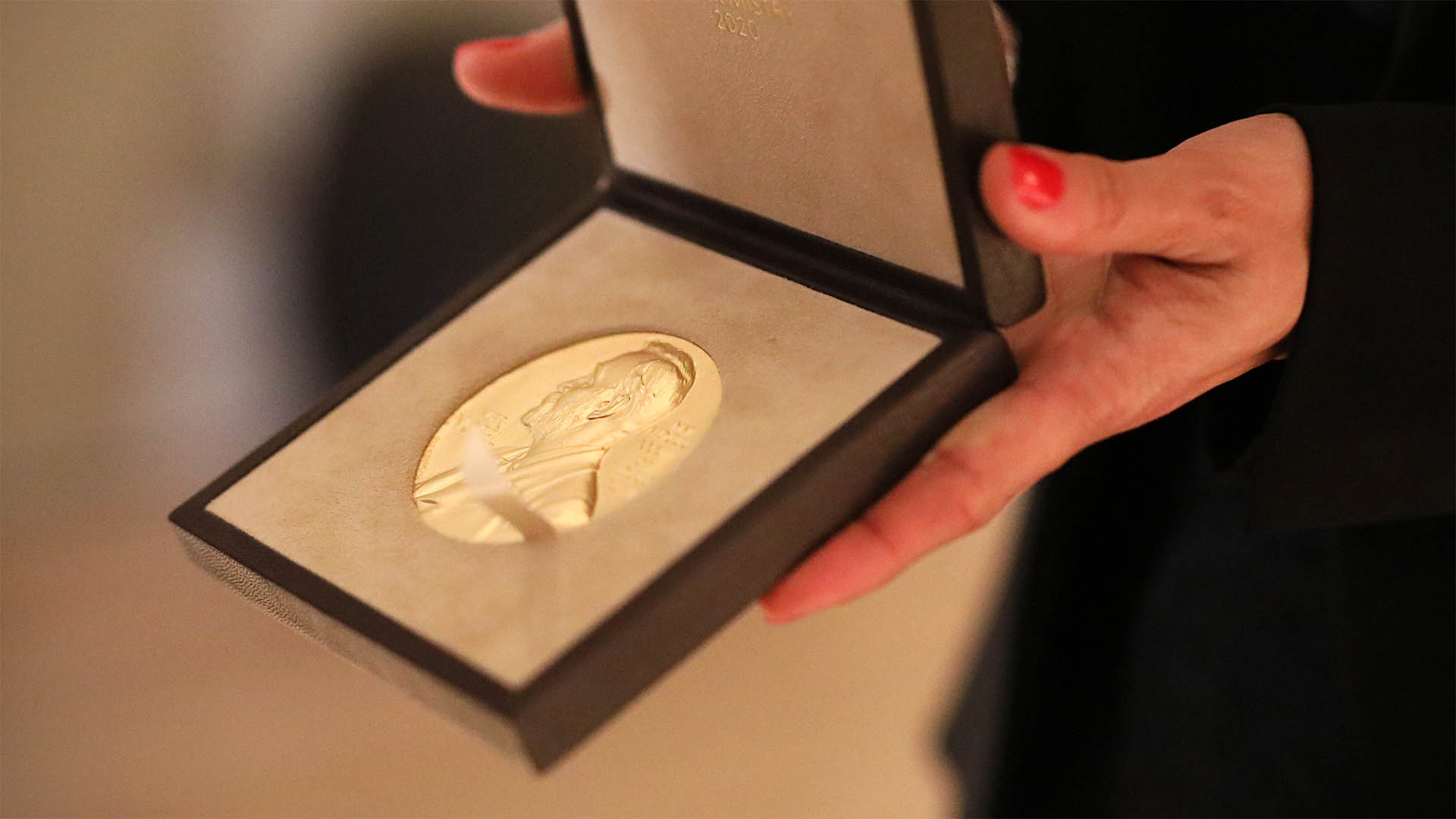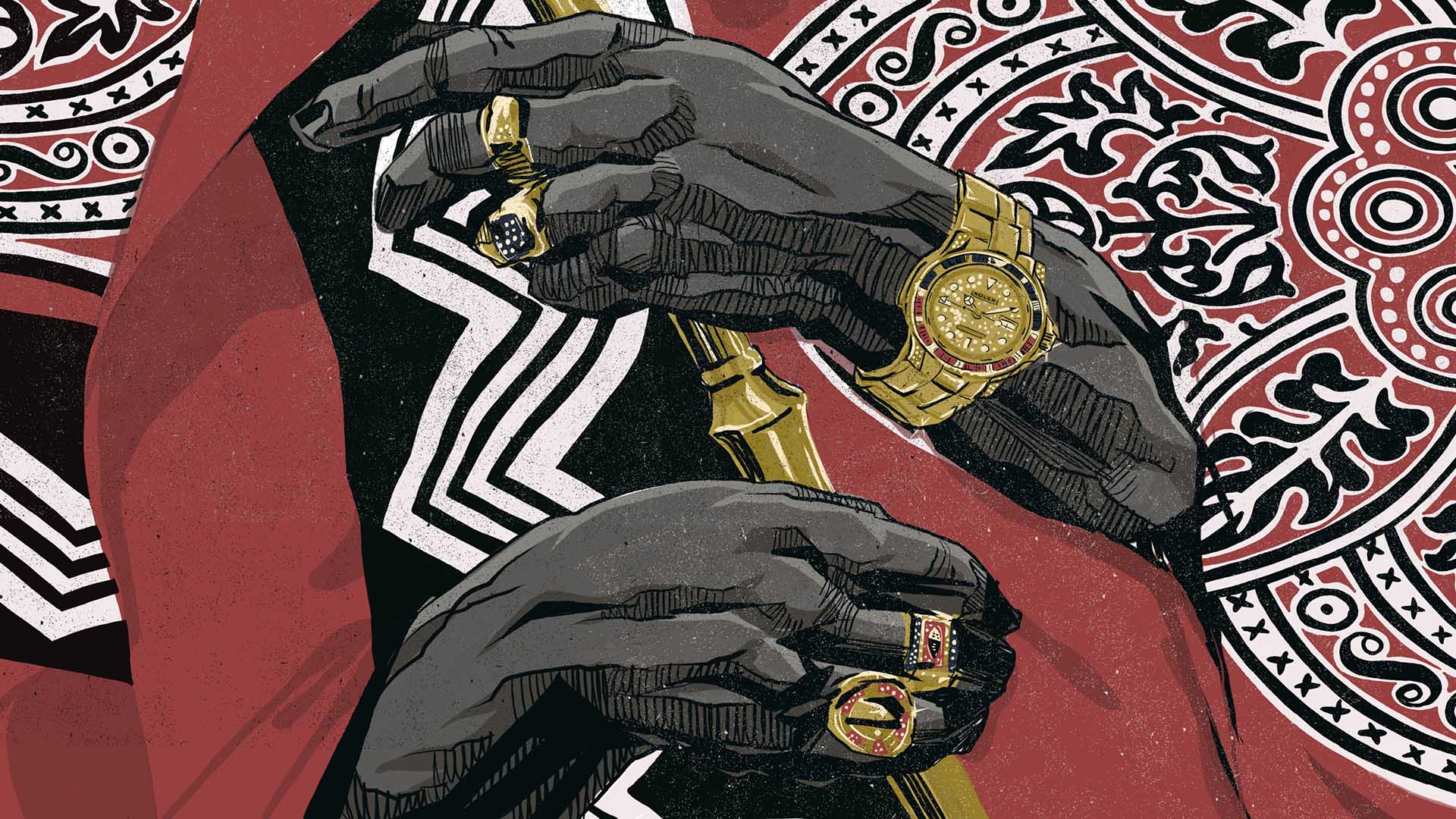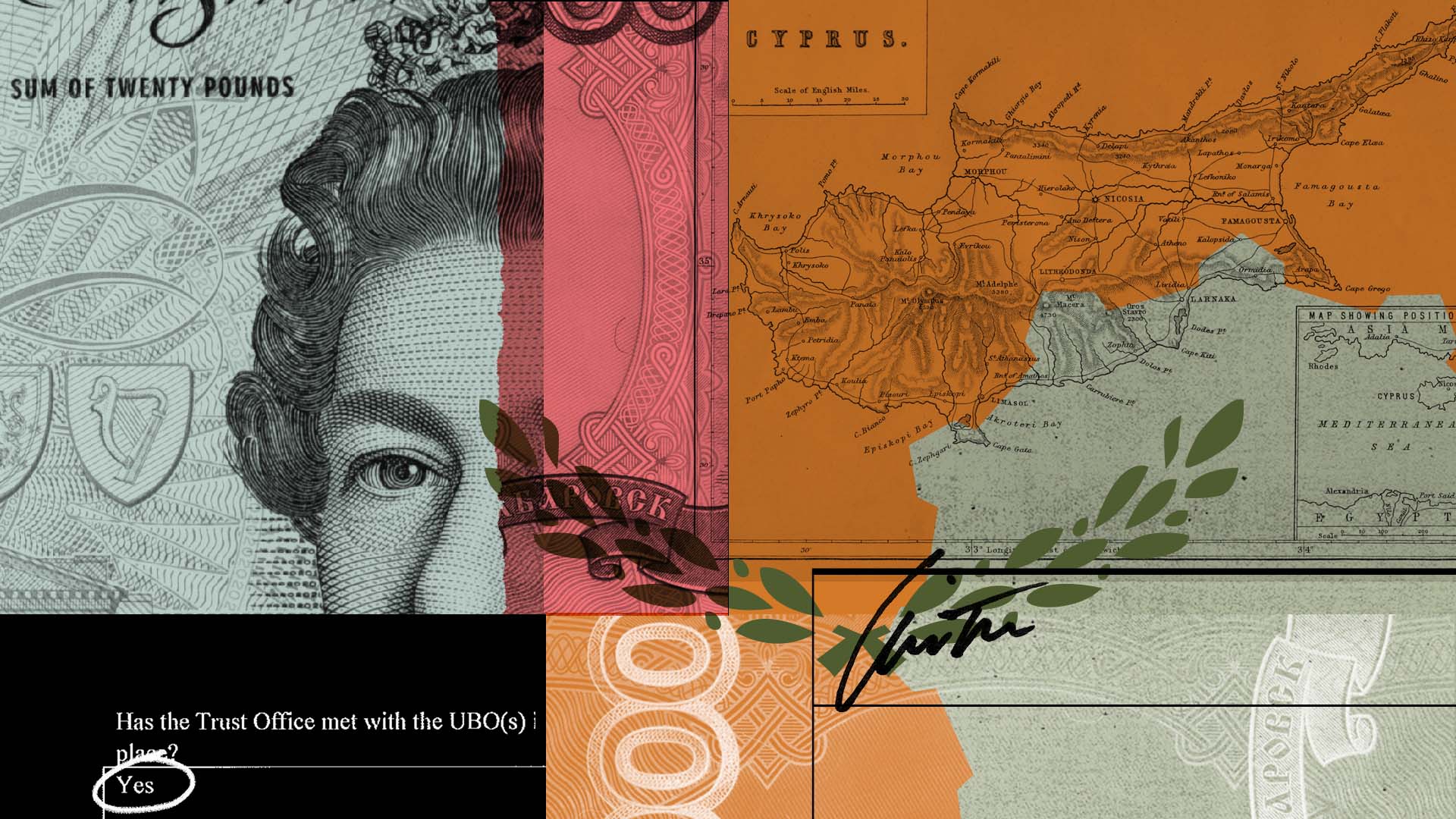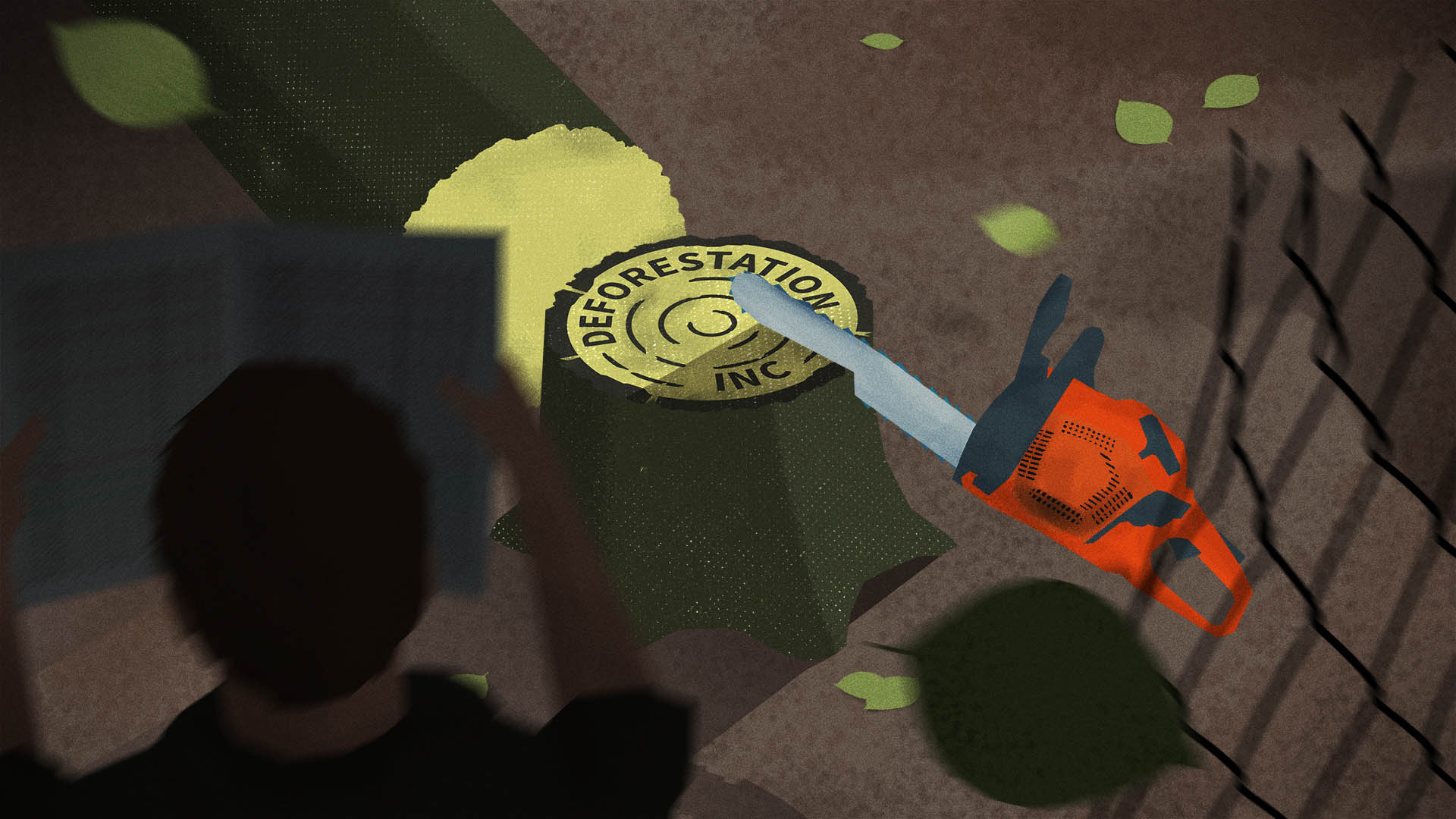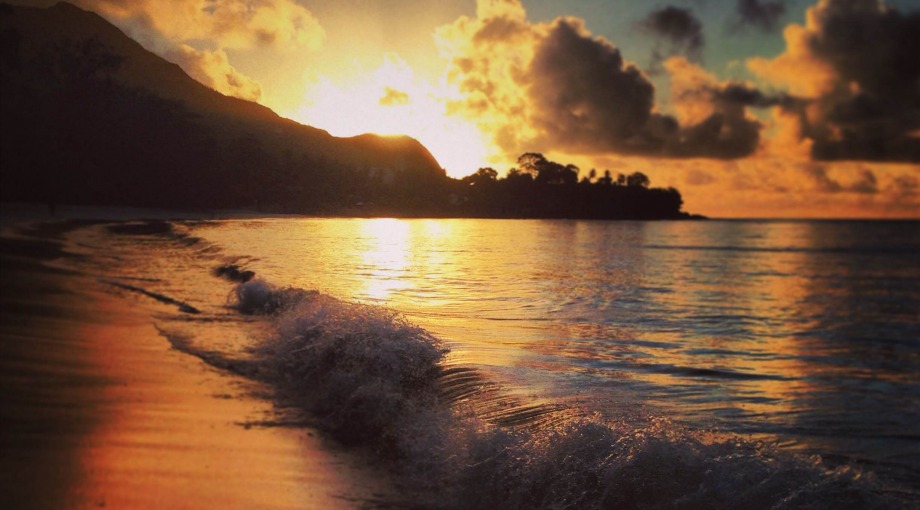
Seychelles, a thousand miles from anywhere, is an offshore magnet for money launderers and tax dodgers. A look at this corruption-haunted archipelago shows how the offshore secrecy system has grown — and where it’s going.
In the fall of 2012, two strangers from Africa showed up in Seychelles, an emerald-green archipelago in the Indian Ocean nearly a thousand miles east of Somalia. Unlike Prince William and Kate Middleton and other A-list celebrities who favor Seychelles as a getaway, these visitors didn’t come to enjoy the islands’ natural beauty and luxury accommodations. They were there, they said, to conduct business in Seychelles’ bustling offshore financial center.
Eventually they made their way to the offices of Zen Offshore, one of dozens of firms on the islands that set up hard-to-trace “shell companies” for clients around the world. They explained that they represented an individual who served as a “liaison officer between the Zimbabwean government and the rich diamond mines.”
For anyone who understands the nexus of corruption and money laundering in resource-rich, economically poor countries, this statement should have raised suspicions. But before they could go further, a Zen Offshore representative cut them off.
“Yep, we don’t want to know that,” he said, chuckling. “If we have knowledge of that, we have to put it forwards. So I haven’t heard a word you said in the last couple of minutes.”
The operative went on to explain how the pair could set up a company in Seychelles and hide the identity of who was really behind it by creating a labyrinthine ownership structure, putting “a company inside a company inside a company.”
The Seychellois company would be controlled by a company in Dominica, which would be controlled by a company in Belize, and so on. Anyone trying to discover the real owner would never be able to follow the paper trail around the world.
“It’s just impossible,” the Zen Offshore man said. “No one is going to try and chase that sort of information.”
The conversation can be quoted in exact detail because the would-be customers weren’t actually emissaries for a corrupt middleman in Africa. They were undercover journalists running a hidden-camera sting for an Al Jazeera television program.
Their documentary, which aired soon after their visit, produced a ripple of scandal in one of the world’s most remote offshore havens, a place that’s gained a reputation as a magnet for Arab princes, Chinese investors, pirates, fugitives, mercenaries, mobsters — and outlanders who want to hide their money or disguise their business activities.
Rise of the small havens
Thanks to its offshore industry, Seychelles, an island nation with a population smaller than Davenport, Iowa, maintains a Zelig-like presence in the annals of international corruption and money laundering. Where there’s an odor of financial scandal, there’s often a good chance Seychelles is involved.
Zoom out to see some of Seychelles’ more controversial offshore links:
In 2010, for instance, the government of Kazakhstan issued an arrest warrant for Mukhtar Ablyazov, a banking tycoon who has been accused of using Seychellois companies as part of a scheme that plundered billions of dollars from Kazakhstan’s BTA Bank.
In 2011, a subsidiary of the Reserve Bank of Australia admitted it had channeled millions of dollars in bribes intended for Nigerian officials through a Seychellois shell company linked to a convicted white-collar criminal.
And in 2012, two entrepreneurs based in Israel pleaded guilty in a U.S. court to operating an illegal Internet pharmacy that laundered much of its profits through Seychelles.
The history of the rise of Seychelles’ offshore industry offers a case study in the rise of tiny, out-of-the-way tax havens. At a time when tax havens have become an flashpoint of debate around the world — even becoming an issue in 2012 U.S. presidential race, thanks to Republican Mitt Romney’s Cayman Islands holdings — understanding how small havens emerged and how they have prospered is important to understanding how the offshore financial system has flourished.
Like most small tax havens, Seychelles has an outsized impact that belies its modest market share. As Al Jazeera’s undercover muckrakers discovered, offshore patrons and the accountants, bankers and other operatives who help them usually don’t settle for a single offshore company or bank account. They create elaborate webs that use multiple jurisdictions, multiple front men and multiple layers of ownership. Smaller havens such as Seychelles are crucial links in these chains of secrecy and in the wider offshore system.
They support a system that, critics charge, caters to drug traffickers, fraudsters, money launderers and high-net-worth tax dodgers, fueling onshore corruption and poverty. By one estimate, as much as $32 trillion in private financial wealth is hidden is offshore havens — roughly equivalent to the annual output of the U.S., Chinese and Japanese economies combined.
Remote, sparsely populated financial refuges have survived despite two decades of promises by rich nations and international organizations to shut them down. Far from pulling back, Seychelles and other smaller hideaways are now becoming even bigger players in the offshore world as the U.S., the U.K. and other world powers have passed new laws and launched new multinational initiatives aimed at cracking down on cross-border tax dodging and money laundering. Over the past year, international groups such as the Organization for Economic Cooperation and Development, better known as the OECD, have stepped up their pressure on Switzerland, the British Virgin Islands and other European-flavored financial havens.
For Russian and Eastern European mafia and money launderers around the world, the OECD’s push has only increased the appeal of what Euan Grant, a former U.K. customs official who now works as a consultant on money laundering issues, calls the “new havens” — independent states operating outside the Western political orbit.
“We’re talking of Singapore, the United Arab Emirates and, increasingly, Mauritius and the Seychelles,” Grant says.
The OECD says Seychelles has mostly resisted the organization’s efforts to prod it to be more forthcoming about who uses its offshore center. In one of the latest reports by the OECD’s global forum on tax information exchange, Seychelles was one of four jurisdictions that received “non-compliant” ratings. There was no assurance, the forum said, that Seychellois corporate service providers were documenting the real owners behind offshore companies set up on the islands.
Seychellois officials objected to the negative rating, saying the country has cooperated with the OECD. In 2012, Steve Fanny, then the chief executive of the agency that oversees Seychelles’ offshore industry, told a business publication that his country had “always adhered to the international norms and principles of good practices. We do not want money launderers or criminals,” he said.
Fanny added, though, that Seychelles is happy to help offshore clients embrace the flexibility of the international tax system: “Paying less tax as long as it is within the parameter of the law is legal. It is not even your patriotic duty to pay a cent more.”
To the Seychellois government, the benefits of the offshore industry are evident in the wealth of the islands’ 89,000 inhabitants: Judged strictly on a per capita basis, Seychelles, where the average income tops $25,000, is the richest country in Africa.

Secret records obtained by the International Consortium of Investigative Journalists indicate, though, that Michel may be seeking opportunities for himself in other lands. The records, published in ICIJ’s Offshore Leaks database, lists a James Alix Michel as the sole shareholder in Soleil Overseas Holding Ltd., an offshore entity set up in the British Virgin Islands in 2007. The address on the Soleil documents match the location of the presidential residence. A government spokesperson declined to say whether President Michel has had offshore holdings.
Soleil Overseas Holdings was controlled by a Mauritius entity called Pines Limited that, in turn, oversaw eight more offshore companies. Documents indicate that three of them are owned in whole or part by Marie Anne Claudine Lilette Savy — the wife of Glenny Savy, a member of President Michel’s inner circle and the chief of the Islands Development Company, which oversees tourism and construction efforts on Seychelles’ so-called Outer Islands.
President Michel and Glenny Savy did not respond to requests for an interview and a series of emailed questions.
Opposition media and politicians see the documentation of Michel’s offshore holdings as evidence of backroom intrigues that benefit the powers that be. They note that a 2008 U.S. State Department cable, published by Wikileaks, indicated that American officials believe “corruption is the critical reason why a country as wealthy as Seychelles … has suffered so many persistent economic problems,” necessitating a $2.1 billion bailout from the International Monetary Fund in 2008.
Jean-Francois Ferrari, a journalist and former member of Seychelles’ National Assembly, fears that, in a nation where the president’s party controls 31 of 32 seats in the legislature, Michel’s silence on questions about his offshore assets will close the door on any discussion of the issue.
“A president and his cronies stashing their money in an offshore account, in order to keep it away from their own tax authorities — in any other part of the world, these people would be on their knees, begging for forgiveness,” says Ferrari. “Here, guess what? It’s just business as usual.”
‘Distinctly unusual’
Until the late 18th century, Seychelles remained largely uninhabited by humans. The first settlers were hardy French merchants, who established a small colony on the western flank of Mahé, the chain’s largest island. By the early 19th century, Seychelles had passed bloodlessly into the hands of the British empire. As of 1810, the population was 3,467: 3,015 slaves, 135 free blacks, and a ruling class of 317 whites, or Grand Blancs. Seychelles slumbered — a kaleidoscopically lush and iniquitous backwater written off by the admiralty as little more than a resupply point for eastbound slavers.
Then, in 1971, an airport opened on the northeastern coast of Mahé. Tourist infrastructure soon followed: hotels, souvenir shops, ferries, casinos, helicopter tours.

In time, René’s foes obtained the services of a famed Irish-South African mercenary, “Mad Mike” Hoare, who served as a model for a Richard Burton’s character in the Hollywood soldier-of-fortune drama, The Wild Geese. In November 1981, Hoare and a band of aging guns-for-hire chartered a plane from South Africa to Seychelles, packing AK-47s in their luggage and posing as members of a rugby-and-drinking club.
The would-be counter-coup went bad when they landed at the airport near Victoria, the islands’ capital. After a brief fire fight that left one customs inspector dead, Hoare and most of his men escaped by hijacking an Air India jet. The South African government paid a $3 million ransom, news reports at the time claimed, to ensure the release of five mercenaries and a South African intelligence officer who’d been left behind.
René hung onto power with support from James Michel, who was his finance minister and then vice president. He also relied on an Italian named Giovanni Mario Ricci, another in a long chain of outsiders who come to Seychelles to make new lives.
Ricci became René’s friend, advisor, financial backer, and fixer.
René’s government teamed with Ricci in 1978 to create Seychelles’ offshore financial center. Seychelles Trust Company was a joint venture between Ricci and the Seychellois government and held exclusive rights to incorporate offshore companies in the islands.
René and Ricci created what was, in essence, the world’s first socialist tax haven.
By 1981, the year of Mad Mike’s failed coup, Ricci had taken sole ownership of Seychelles Trust Company. From his base in Seychelles, Ricci established business interests in as many as two dozen countries around the globe, associating himself with what historian Stephen Ellis calls “some distinctly unusual companies.” One was a firm called International Monetary Funding, or IMF, which seemed be named in an effort to mimic the International Monetary Fund.
Ricci was also accredited to Seychelles as a diplomat representing the Sovereign Order of the Coptic Catholic Knights of Malta. It turned out that the order had nothing to the do with the Vatican’s venerable Knights of Malta order of chivalry. Instead it was a commercial company based in New York City. Via this maneuver, Ricci snared a diplomatic passport and use of a diplomatic pouch, which allowed him to move documents around the world undetected.
Years later it would emerge that Ricci, like many foreigners who come to Seychelles, wasn’t exactly what he passed himself off to be.
The father of Seychelles’ offshore industry had, in fact, been a financial criminal before he found a home in the islands — and may have been connected to the Italian Mafia, one U.S. ambassador to Seychelles believed. Ricci had been convicted of fraud in Italy in 1958 and, later, of possessing counterfeit cash in Switzerland, and had come to Seychelles after being expelled from Somalia under mysterious circumstances.
René later claimed that he had asked Italian officials whether Ricci had a criminal record, but “they told us that they had nothing on him.
Offshore Capital

In the afternoons, those same cliffs turn Victoria into a convection oven — the heat roars in and, absorbed by the asphalt, does not roll out again until long after the sun has dropped over the horizon.
The offshore action in Seychelles centers on the main square, in a series of unlovely multi-story office complexes. Accountants and corporate operatives work in mostly interchangeable, white-walled offices, on desks cluttered with manila folders. They take their lunches at one of the Victoria members-only clubs, and spend the afternoons receiving a steady stream of foreign clients, or chatting on the phone with the European and American lawyers who help steer new business their way.
After the Al Jazeera undercover sting, there was a flurry of handwringing in opposition media about the offshore center.
Paul Chow, a former member of the Seychellois parliament and a long-time player in the local offshore business, was quoted as saying that “we should not be surprised by what we saw and heard on Al Jazeera,” adding that “all kinds of unethical conduct goes unpunished or simply brushed under the carpet — treated as business as usual. It is this swamp that everyone operates under.”
In a recent interview, Chow continued to express worries about corruption on the islands, but said that he and most other offshore operatives on the islands operate in an honest manner. He said the two offshore services firms targeted by the Al Jazeera story were outliers that had been allowed, in the absence of much governmental oversight, to do as they pleased. The government stripped both firms of their licenses after the story aired.
Chow is short, with graying hair, olive skin, thin lips, and old family roots in Seychelles. In the early 1920s, his father, a teacher from Guangdong, headed for Madagascar, found himself instead stranded in Victoria, without a boat ticket back to China. He married a Seychellois woman and had six children. Paul — now 62 — was the youngest.
A Mancham loyalist, Chow fled to England after René seized power in 1977. During his exile, Chow and several confederates worked to overthrow, from afar, René’s government. Ricci, the offshore industry chief and René advisor, was a player in this cat-and-mouse game, hiring private detectives to spy on the president’s enemies.
In 1985, Chow’s closest ally in London, Seychellois activist Gérard Hoareau, was gunned down outside his flat. The murder was never solved, but Chow and many other critics of the Seychellois government believe it was a political assassination. Chow moved back to Seychelles after international pressure helped force René to hold multi-party elections. He spent five years in parliament; later, he stepped down to open an offshore services firm — a popular choice for former politicians with connections and cash.

Chow walked out of the Premiere Building, and into the afternoon heat. School kids crowded the sidewalks, laughing, singing — girls in pink shirts and dresses, boys in white shirts and crisp blue slacks. Chow plowed past them, talking a mile a minute.
“The British Virgin Islands,” he said, “registers 30,000 companies a year. We are at about 11,000. We are catching up.” He said Seychelles has gained ground because, unlike Mauritius and many other offshore centers, it has stood up to pressure from the Organization for Economic Cooperation and Development and other international powers.
“Mauritius made the mistake of following the rules,” he said. “Whatever the OECD said, they followed, so that actually killed their offshore corporations.” Chow believes Seychelles doesn’t have to do anything the OECD says, because the “OECD has no power — it’s just a think tank.”
He stopped at the Seychelles Yacht Club, a ramshackle affair established in 1964, when the island was still under British rule. Inside, middle-aged white men washed down plates of fried fish with bottles of SeyBrew, the local lager. Chow mentioned he might run for president in 2016, when James Michel will be up for re-election.
Chow doesn’t think the revolving door between Seychelles’ politics and Seychelles’ offshore industry is a problem. He deflected a question about this phenomenon by bringing up U.S. Vice President Joe Biden.
“Where the vice president comes from, what’s it called?”
“Delaware.”
Delaware, like Seychelles, harbors anonymous shell companies that have helped the U.S. state gain a reputation as a haven for fraudsters and arms smugglers. Chow noted a recent study that concluded that the U.S. was one of the easiest places in the world to start an anonymous shell company. In the U.S., he argued, “they don’t ask you for anything.”
Efforts by the U.S. and other Western powers to rein in offshore sanctuaries such as Seychelles have been undermined by questions about big nations’ own role in enabling — and profiting from — the offshore system. Like other offshore operators in Seychelles, Chow thinks it’s unfair to pick on his country when rich and powerful nations are just as culpable in the flow of untraced money — in essence, he argues, the rest of the world does it, so why can’t we?
‘They’re going to kill you’
By the time of Hoareau’s murder in 1985, Seychelles’ notoriety as a place of dark intrigues was well established.
Ricci, the master of the country’s offshore industry, likely used the islands as base for helping South Africa get around apartheid-era economic sanctions, according to Ellis, a historian at Leiden University in the Netherlands and an expert on corruption in Africa. One of Ricci’s business partners was a South African intelligence officer who helped lead South Africa’s efforts to circumvent international embargoes.
“That was the kind of crazy place it was … Most of it was just out of some second-rate spy novel.”
David J. Fischer, the U.S. ambassador to Seychelles from 1982 to 1985, said he and other American officials picked up evidence of widespread illicit activities on the islands during this period, including money laundering by New York’s Gambino crime family, dirty cash being moved in and out of the country by French and American banks, even a case involving heroin shipped into the U.S. disguised as canned fish, with the proceeds laundered through Seychelles.
“That was the kind of crazy place it was,” Fischer, now a resident scholar at San Francisco State University, said in an oral history interview with the U.S.-based Association for Diplomatic Studies and Training. “Most of it was just out of some second-rate spy novel.”
As American officials dug into these kinds of cases, many of the connections seemed to trace back to Ricci. Some, Fischer said, also traced to President René. In one instance, Fischer said, René’s personal telephone number was discovered in an address book taken off the body of a gangster murdered in a drug-related hit in New Jersey.
Fischer said he went to René to let him know about his connection to the U.S. murder case, telling him: “You’re over your head with this Mafia business. You’re in with Ricci. … You know that when they’re finished with you, they’re going to kill you.”
This conversation, Fischer said, was the only time he ever saw René — a “very cool negotiator” — flinch. René did not reply to phone messages and emails seeking comment for this story.
Questions about Ricci’s role in bugging opposition leaders may have helped prompt Ricci to decamp from Seychelles, leaving a vacuum in the islands’ offshore industry. (Ricci died a few years later.) In 1988, the country passed extensive offshore legislation, looking to expand its market share.
The local offshore industry got a boost in the 1990s with the fall of the Soviet Union. Seychelles, which is on roughly the same time zone as much of Eastern Europe, was a popular choice among those who wanted to quietly move money out of the region, according to Jason Sharman, a political scientist at Australia’s Griffith University. “There’s no doubt that a lot of this was shady business,” Sharman said.
In 1995, a man claiming to be the representative for a group of wealthy Russians based in London met with the deputy speaker of the Seychellois legislature and with a counselor to James Michel, who at the time was René’s finance minister. The man explained that his bosses wanted to invest $115 million through Seychelles. “Strict confidentiality will be maintained as to the source of funds,” the legislator promised. “We will not investigate this. It’s not our concern.”
In what seems to be a not-so-unusual scenario in the islands, the stranger turned out to be an undercover journalist. In a 1996 exposé headlined “Crooks Paradise,” The Sunday Times of London reported that the island officials helped him set up a shell company and promised diplomatic status to his supposed Russian bosses, noting that diplomatic luggage would never searched by customs officers. After the initial meeting, the newspaper said, the legislator reported back that he had met with Michel and gotten approval for the arrangement: “He has been fully briefed about your deal and wants it to go ahead. Everything is very positive here.”
Haves and have-nots
In 2004, France-Albert René stepped down as president, and handed the reins of the country to his protégé and vice president, James Michel.
Now 69, Michel, who won elections in 2006 and 2011, is always careful to tout his commitment to democracy and his success in maintaining a social safety net for all Seychellois. Every citizen is guaranteed free schooling and health care, he is fond of pointing out, which is not the case in most of Africa.
Still, the gap between rich and poor in Seychelles is one of the largest in the world, according to the Gini index, a measure of income distribution.

In the mornings, flatbed pick-up trucks roar back and forth between under-construction luxury resorts and the honeycomb of pre-fab villas and military-style barracks that houses a large population of South Asian workers. Funding for the projects often comes from Chinese and Arab investors, who hire other foreigners to carry out the actual building — leaving native Seychellois out of the loop in the process.
“The people at the top have enriched themselves immensely over the past few years by controlling everything,” said Ferrari, the former opposition politician. “These guys have been involved in any possible business you can think of: construction, transport, trading, instruments. You name it, they’re involved on a level.”
The islands’ political and financial power brokers include members of the Savy family, which, like a long-limbed octopus, touches seemingly everything in Seychelles, from a lucrative insurance company to an array of other business, investment, and real estate concerns.
The Savy name first appeared in Seychellois history in 1785, when a French naval officer named Francois-Blaise Savy landed in Seychelles along with his son and one slave. Over time the Savy clan gobbled up expanses of prime real estate. Frégate Island, for instance — the site of what The Times of London has dubbed the most beautiful beach in the universe — was for years owned by the Savy family; local lore has it that a Savy patriach named Harry lost it in a poker game. (Among other high-profile parcels, the Savys still own Bird Island, a popular destination for eco-tourists.)
The Savys are also politically connected. Glenny Savy and his brothers are children of ex-President René’s former wife. Glenny is also close to the current president, serving on Michel’s National Economic Council as well as leading the government’s Islands Development Company.
Glenny Savy also appears to be linked to Michel through three offshore companies owned wholly or partially by Savy’s wife. These companies are part of a network of British Virgin Islands entities that include a company that lists Michel as shareholder, according to confidential records obtained by the International Consortium of Investigative Journalists.
The director of these firms is a Mauritius company, Pines Ltd., and they were set up at the request of another Mauritius company, DTOS Ltd., which is owned by GML Group, a Mauritius-based conglomerate that owns a minority share of the Savy family insurance business and has been involved in resorts on the Seychellois Outer Islands overseen by Glenny Savy.
High-end developments are a touchy issue in Seychelles. In 2012, Scottish environmentalist Alex Foulkes, who worked on a conservation project in Seychelles, self-published a book, Fear and Loathing in Paradise, that accused Glenny Savy of treating the Outer Islands as a “personal fiefdom,” opening up economically fragile areas for resorts and other luxury projects.
Neither the Islands Development Company nor representatives for Glenny Savy responded to repeated requests for comment for this story.
‘Prisoner in paradise’
In 1995, the Republic of Seychelles enacted the Economic Development Act, a law that offered broad immunity from prosecution and extradition to any foreign national who invested at least $10 million in the local economy.
U.S. officials described it as the equivalent of a “Welcome, Criminals” banner. Britain’s Serious Fraud Office called it “the perfect present for drug barons, fraudsters and money launderers.” Under international pressure, the government backed down, at least on paper. The law was taken off the books.
Still, the spirit of the law lives on. In 2005, reputed Czech mob boss Radovan Krejčíř arrived in Seychelles seeking asylum, after jumping out a bathroom window back in Prague to escape police who were investigating him on murder and money laundering charges.

Krejčíř is currently behind bars in South Africa as authorities decide whether to send him back to the Czech Republic to stand trial or to try him in South Africa on kidnapping and assault charges in connection with a botched $2 million crystal meth deal. “I am no angel,” he’s said in his defense. “But I’m not the devil.”
The stories of two other fugitives have gripped the country over the past 18 months. Marek Trajter, a Slovakian who gained Seychellois citizenship in early 2013 after cultivating friendship with one of President Michel’s closest advisors and making charitable donations to government organizations, was deported after Interpol revealed that he was wanted in the murder of a businessman associated with the Slovakian mafia. Also in the news has been Saker el-Materi, son-in-law of deposed Tunisian dictator Zine El Abidine Ben Ali, who fled to Seychelles after a Tunisian court sentenced him to 16 years in jail on corruption charges.
Seychellois authorities have refused Tunisian pleas to deport him, saying they fear that el-Materi would not get a “free and fair” trial in his native land.
These cases and others like them have created the perception that Seychelles is up for sale to the highest bidder — that if you have enough cash and enough connections, you can stay on the islands for months or years.
Five years ago, in an effort to address concerns about corruption and about the money flowing through the islands’ offshore industry, the Seychellois government established the Financial Intelligence Unit.
The unit’s director, Declan Barber, a retired military intelligence man from Ireland, said the amount of illegal money coming through the country had been drastically reduced. But it has been by no means eliminated, he acknowledges. Somali pirates, long active in Seychellois waters, continue to throng to the area, as do local and international drug traffickers.
“If Seychelles is allowed to become a haven for criminal money,” Barber said, “what happened in Cyprus will happen here. The criminals will move in and they’ll start to establish networks here. They’ll corrupt the political process through money. They’ll corrupt it through violence and threats of violence. The social fabric will break down. That’s the threat scenario.”
International investigators who track money laundering say that Seychelles has already become a haven — or a least a way station — for dirty money.
Attorneys investigating Russia’s Magnitsky affair, for example, have alleged that mobsters and Russia government insiders stole $230 million out of that country’s treasury, using four Seychellois shell companies as part of the shadowy network that moved the money through Switzerland, Dubai and other locales. In November, the deputy speaker of Bulgaria’s parliament resigned as prosecutors announced they were investigating him and his stepson for tax crimes and money laundering after finding they had wired large sums through accounts in Europe and offshore companies in Seychelles.
‘People are afraid’

A lawyer by trade, Boullé believes the authority does a fine job watchdogging offshore activities. “Nobody should be against regulation, you see,” he said.
Offshore banking, Boullé argues, should no longer be viewed as suspect. He pointed out that Barclays, which maintains a branch in Seychelles — Boullé was once the local chairman — is involved in the offshore world, as are legions of other banks. The offshore world is no longer epitomized by “the old suitcase affair — you know, the Frenchman took a suitcase and went to Honduras, the Italians went to Monaco,” he said. “It’s funny. Somebody wants to do business now, they need a bank account.”
For critics of tax havens, the argument that banks are integral to the offshore world isn’t a defense; it’s evidence of how deep offshore abuses are rooted in the global financial system. Many of the world’s biggest banks — including HSBC and JPMorgan Chase & Co. — have been sanctioned for failing to follow anti-money laundering rules. Barclays itself paid $298 million to settle U.S. criminal charges that it shifted hundreds of millions of dollars on behalf of banks and individuals in Cuba, Iran, Libya and other rogue nations.
Boullé’s firm keeps offices in several tax havens around the world, from the British Virgin Islands to Anguilla, Panama and Belize. He says would-be clients who approach him must pass a battery of tests and background checks before he will take them on.
This is a claim echoed by most offshore operators in Seychelles: These days, we play by the rules, and we have nothing to fear. They note that the Al Jazeera undercover correspondents approached 10 offshore providers before they emerged with the evidence featured in the network’s 2012 report.
Cleaning up the offshore center’s image is important for the Seychellois government, which counts the offshore sector as one of the pillars of the country’s economy, along with fishing and tourism. Offshore banking is “something that we cannot afford to trade for any price,” Peter Sinon, the minister of investment, natural resources and industry, has said.
Some critics of Michel’s government say the price of offshore profits may be too high — as least given the freewheeling style in which the islands’ offshore industry now operates. Jean-Paul Isaac, a firebrand opposition blogger who lives in poverty on Mahé island, advocates for a “strong healthy offshore services sector that attracts legit investment. As opposed to, you know, a jurisdiction that is prepared to sell out … and become an international pariah in the financial services world.”
Isaac, who is in his thirties, lives in a cement-walled shack in the working-class town of Mont Fleuri. In the front yard, chickens jostle for space with a pair of haggard dogs and a moribund Jeep Cherokee. Isaac does most of his blogging in his living room, on a battered desktop computer.
It’s hard to imagine a starker contrast to the nearby resorts, with their teak furniture and palm-frond-shaded courtyards. But as Isaac is quick to point out, how he lives is how most Seychellois live.
“People in Seychelles are afraid,” he said, knotting his fingers behind his head. “People are miserable here. They don’t have money. They don’t have anything. They can’t do nothing.”
Around the world, offshore financial centers are often touted as economic engines that help small, resource-starved places improve themselves. But it is often a few well-connected locals — along with expatriate lawyers and accountants from the U.S., the U.K., Australia and other rich nations — who enjoy most of the profits.
Isaac’s diapered son walked into the living room, followed by Isaac’s girlfriend. As chickens clucked outside, Isaac leaned back into his chair and launched into an extended riff on the toll exacted on the country by offshore intrigues. The middlemen on Seychelles and other havens that service offshore clients, he believes, have made it possible for President Michel and his friends to stow their money half a world away — and for tainted cash to flow in and out of the islands that Isaac calls home.
“These guys, that’s their business, that’s their livelihood, that’s how they’ve made their money,” he sighed. “But essentially [they’re] selling the jurisdiction’s reputation for personal profit.”
Matthew Shaer is a US-based magazine journalist.
